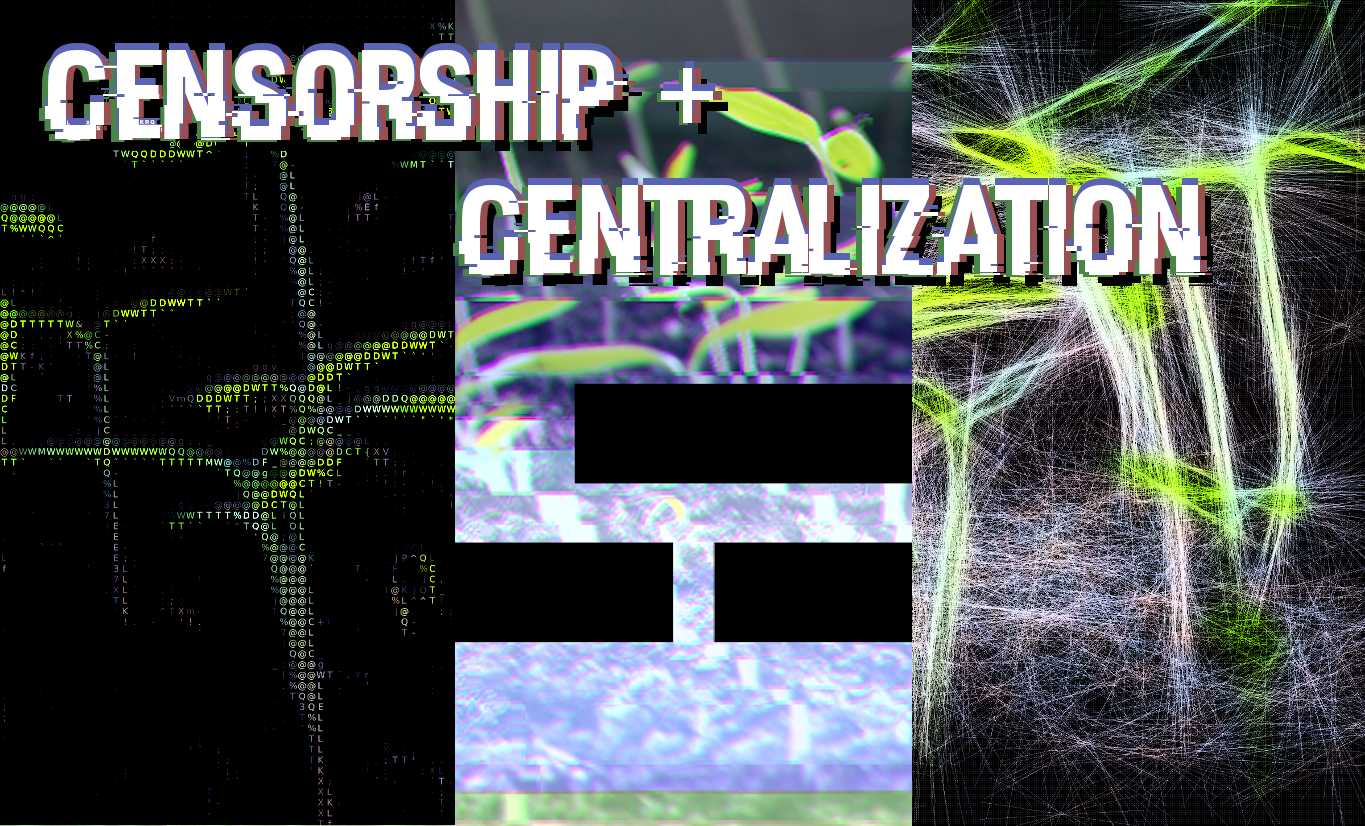Censorship and Centralization
De-platforming gets thrown around as equivalent to censorship or getting kicked off of the Internet, but this is a dangerous and self-fulfilling lie. Beyond being demonstrably not true, we also cannot cede the digital public square to private corporations which do not, at their core, serve the public interest.
This is the “intro” post to a series on the past, present, and future of the Internet, specifically around communities, centralized platforms, and censorship – and some paths forward.
-
In “I Believe in the Internet“, I discuss what life was like in the pre-web days of the Internet, focusing on the volunteer efforts of building and maintaining of community. This is an era it’s worth remembering, but also deserves a reflection on its failings as well.
-
I fast forward to current content moderation debates in “De-platforming is censure not censorship.“, where we have traded the increasing pains of managing these small communities for massively centralized, profit-seeking social media platforms (in parallel with a general centralization of Internet infrastructure), and use the Parler “takedown” as an example of just how hard you have to try to actually get fully “de-platformed,” and to start a discussion of why we need to flip this narrative to being one of why these powerful megaphone-giving tools are providing their platforms to violent hate speech, when there are - if you read beyond the headlines and hubris - so many functional options.
-
Finally, in “Centering Decentralization“, I cover the real costs in untangling ourselves from centralized platforms. It’s neither possible nor useful to recreate the community feeling of the proto-Internet days. There is however, value in building towards a more deeply inclusive combination of systems and platforms that restores community ownership and protects free speech, but also doesn’t hand out megaphones.

